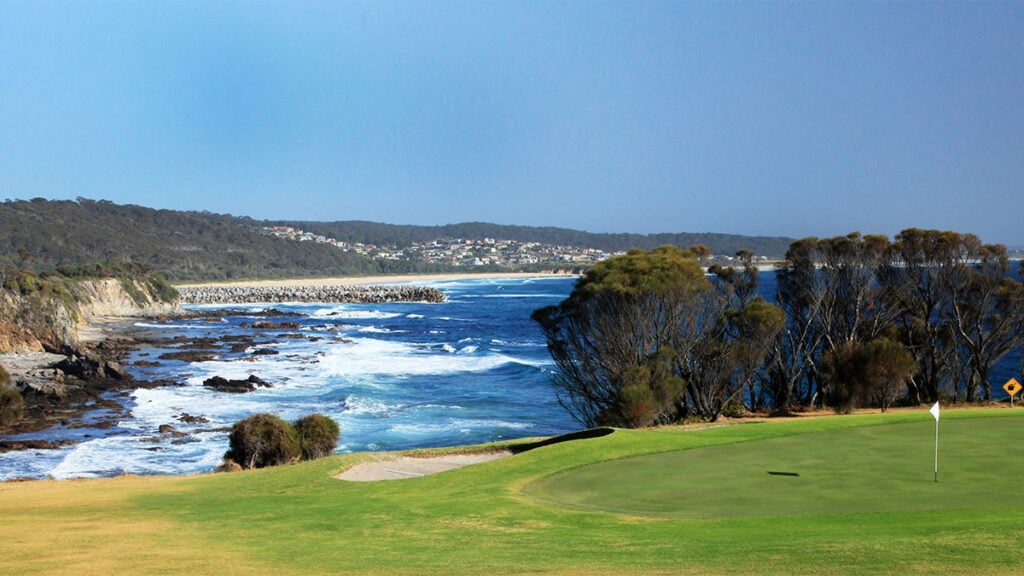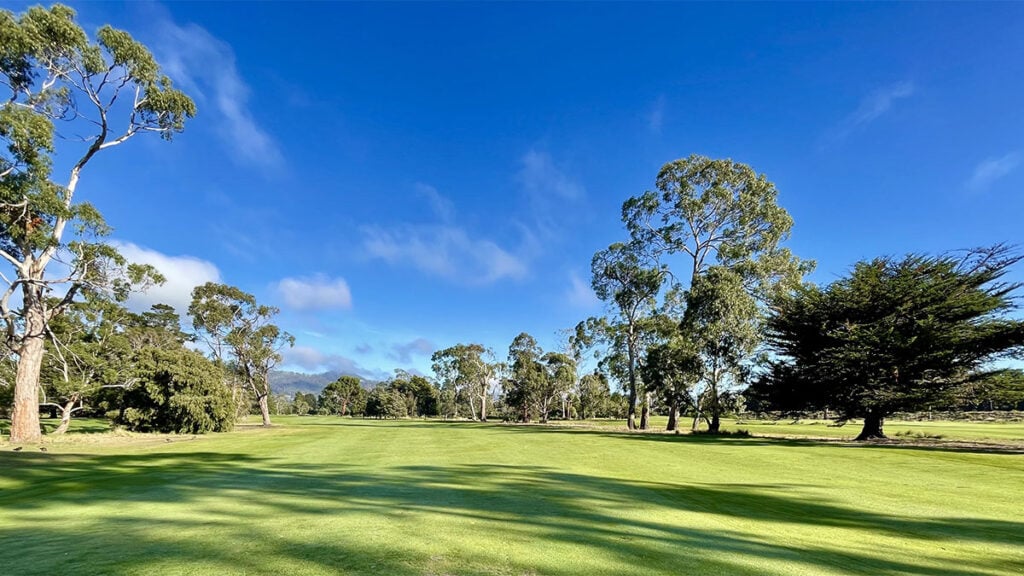Aussie legend Ian Baker-Finch isn’t saying goodbye to golf – he’s redesigning it
Golf has a way of reminding its players that nothing lasts forever.
From a barefoot boy chasing golf balls under the blistering Queensland sun to a major champion and, ultimately, one of the game’s most trusted voices, Ian Baker-Finch has lived nearly every chapter the sport has to offer.
Three decades after his improbable Open Championship triumph – and a second act that made him as beloved behind a microphone as he once was with a club in hand – “Finchy” called time on a life spent orbiting the game he loves. Yet for Baker-Finch, retirement isn’t about closing the book, but rather turning a page – returning to the roots of why he fell in love with golf in the first place and finally allowing himself the space to step back from a game that’s given him everything.
The 64-year-old has been part of golf’s soundtrack for three decades, narrating Tiger Woods’ heroic 2019 Masters win, Adam Scott’s historic green jacket in 2013, Jason Day’s breakthrough at Whistling Straits and Rory McIlroy’s long-awaited career Grand Slam at Augusta. First with ESPN and ABC Sports and most recently with CBS Sports since 2007, his voice has been a comforting guide through some of golf’s most indelible moments.
But ask Baker-Finch what endures most from his broadcasting years and he doesn’t begin with the trophies. He begins with the people.
“There are so many moments,” he says. “The time spent with my colleagues, my family at CBS, and even before that with ABC, ESPN, and the networks back home in Australia – that’s what stays with you. The friendships. The camaraderie. Of course, the tournaments. Adam’s Masters, Jason’s PGA Championship, Tiger’s comeback, Rory’s win this year – those are unforgettable. But it’s the shared experiences with the people you work with that really linger.”
That humility has long defined Baker-Finch. He’s never sought the spotlight, even when he earned it as a major champion. Originally from rural Queensland, he rose to the pinnacle of the sport with his Open Championship victory at Royal Birkdale in 1991 – a moment he still calls the “pinnacle of his life”. But he admits there’s no true comparison between the rush of hoisting the claret jug and the quiet pride of calling a Masters for millions of viewers worldwide.
“Ian Baker-Finch has been a cherished voice in golf for nearly three decades, bringing insight, connection and a deep love for the game to millions of fans,” said PGA Tour commissioner Jay Monahan. “From his triumph at the Open Championship to his remarkable work with CBS Sports, Ian’s contributions have helped elevate the sport and enrich its storytelling. On behalf of the PGA Tour, congratulations, Ian, on your retirement, and thank you for your enduring impact on the game. We wish you and your family all the best.”
Added 15-time major winner Woods: “Congrats Finchy for 30 incredible years behind the microphone. You brought insight into things that the viewing audience could understand and relate to. From all of us – thanks for the memories.”
For Baker-Finch, now, a third act is calling – one that traces back to his childhood. For the first time in decades, he has time to breathe, to create and to return to a dream that’s lived quietly in the background: designing golf courses.
“I’ll still be involved, just at a different pace,” he says. “I’m excited for more design work. That’s always been in my blood.”
That passion took root in childhood. Growing up in the Queensland farming community of Beerwah, Baker-Finch remembers riding 10 kilometres on a tractor with his father to help shape their local golf course – a rough patch of farmland slowly transformed by the grit and vision of a few determined farmers.
“I was 7 or 8, riding down six miles from the farm,” he recalls. “I remember watching my dad and the other farmers build that course. It planted something in me. I’ve always been fascinated by course design. I’ve studied the greats, worked with Jack Nicklaus, Gary Player, Tom Fazio… it’s something I’d love to do more of.”
Alongside design, there’s another long-awaited luxury waiting for him: time.
“When you think about it, I’ll have 23 more weekends at home every year,” he says softly. “More time with [my wife] Jennie, more time with the grandkids. More time to travel for ourselves, not for work. That’s what excites me most.”
It’s a rare gift for someone who’s spent his life on the road, chasing tournaments across the globe. For the first time in decades, Baker-Finch will dictate his own pace.
Still, his voice will leave a quiet void in the game.
“I think people sensed that I just love golf,” Baker-Finch says. “I tried to provide an easy, insightful, encouraging view of what was happening. I stayed true to myself. I’ve just been me. And from what I’ve heard since the announcement, people appreciated that.”
But this chapter is not a farewell. It’s a return to where it all began – a barefoot boy on a tractor in Queensland, dreaming about golf courses that didn’t yet exist. After decades of playing, calling and carrying the game on his shoulders, Baker-Finch is finally stepping into a role he’s been building towards his entire life: not just telling golf’s stories, but shaping where they’re played.
As he steps into this next chapter, one thing is certain – Finchy isn’t leaving golf, he’s simply finding a new way to love it.
Photograph by Keyur Khamar/getty images




